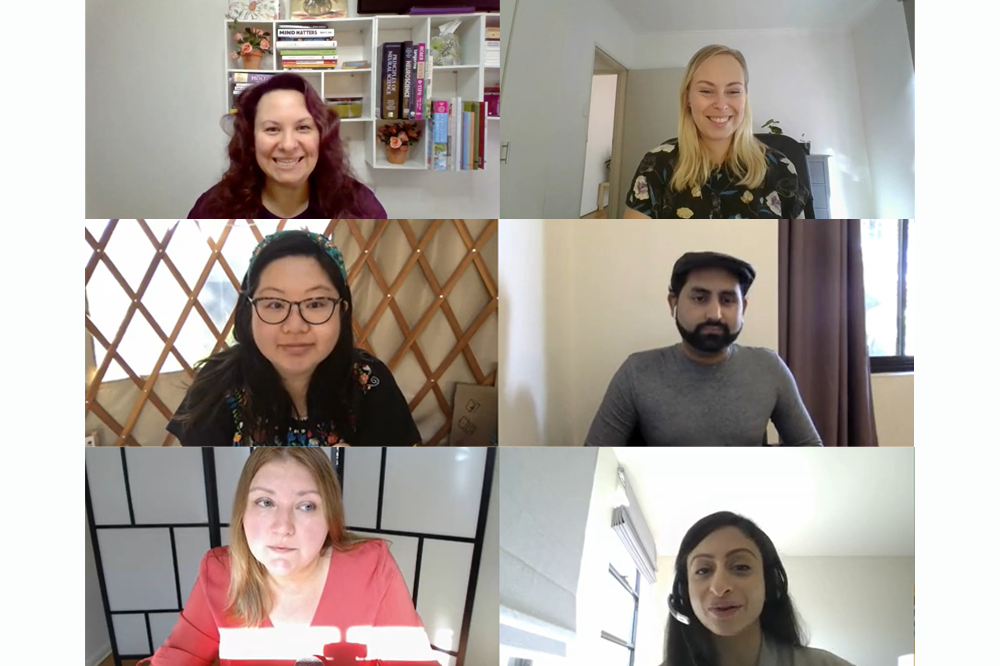When the pandemic hits and your future career suddenly seems further from reach, how do you adapt? In a weekly session from the 7th to the 31st of July, The Melbourne International Student Conference (MISC) invited us to Change, Challenge and utilise collaboration in our future career through COVID-19.
This year’s MISC was fully virtual, connecting speakers and audience in and outside of Australia through a digital auditorium.
Session 1: Career Development in the Current Context
The conference was launched with a warm welcome and acknowledgements of the Traditional Owners of the owners by Anne-Louise Thorbecke, who is the project Manager of MISC 2020. Formal greetings ensued by the Lord Mayor of Melbourne Sally Capp, thanking student for choosing Melbourne as their home.
“You are very much a part of the fabric of this city and we value you,” she added.

Wei Li Wong opened the first session with a bright smile, assuring that we’re all friends chatting in her living room. She invited everyone to type in their feelings about the pandemic. Uncertain, anxious, confused form the largest part of the cloud, and she affirmed that our feelings are mutual. Through her own career experience, Wei Li guided everyone on what to expect on your growth, and strategies to keep in check.
She noted that your internal journey is also important. “You think that a career is very strategic and it’s all career focused, so much of it is an inner journey”.
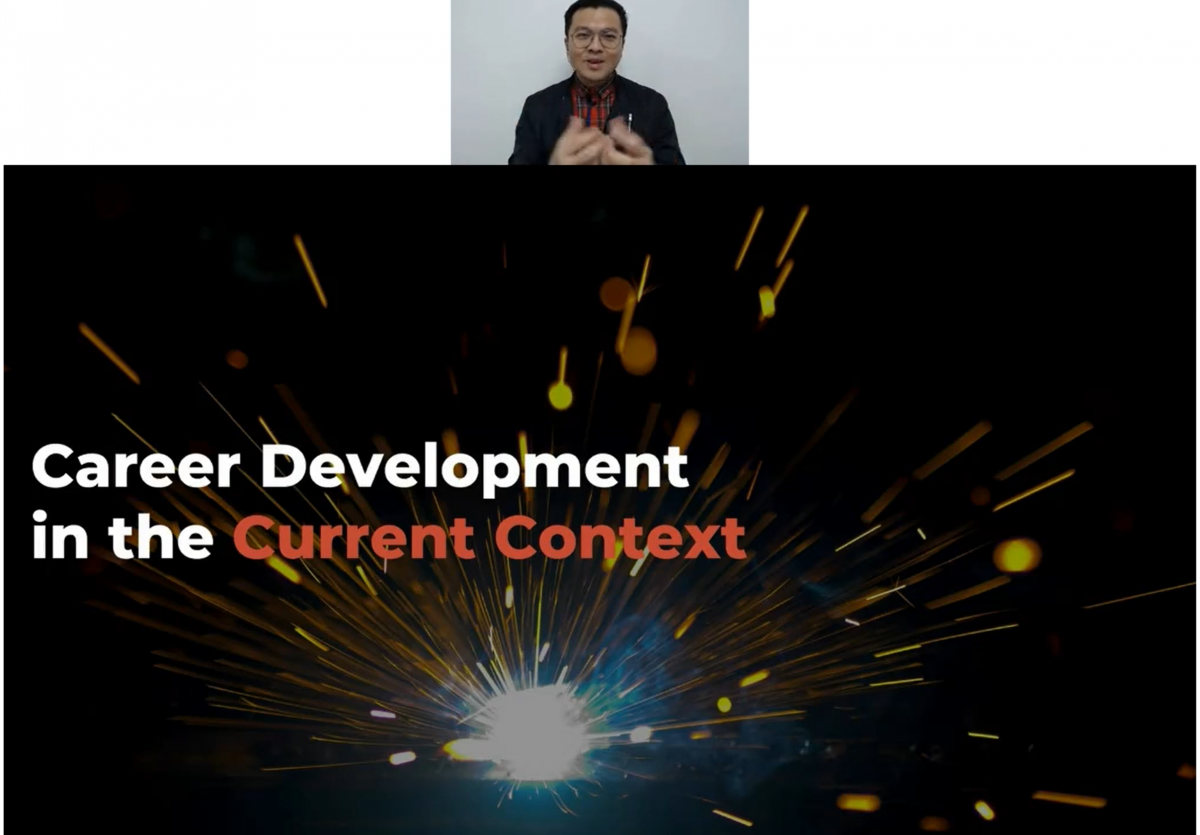
Delwin Keasberry continued the momentum by asking everyone what success means to them. Through a slideshow recap of his incredible career, he pointed to the three P’s, process, perspective and preparation. Delwin warned us of mistakes he made while in uni; waiting for work and wishing things will be better. He followed with a seven day challenge to test and improve your networking skills which he shared with audience
Before rounding up the first seminar, an audience member asked on how to write a unique email.
“Experience over theory… numbers more than words…preparation over luck.” Delwin answered confidently.
Session 2: Professional Communication in Digital Contexts
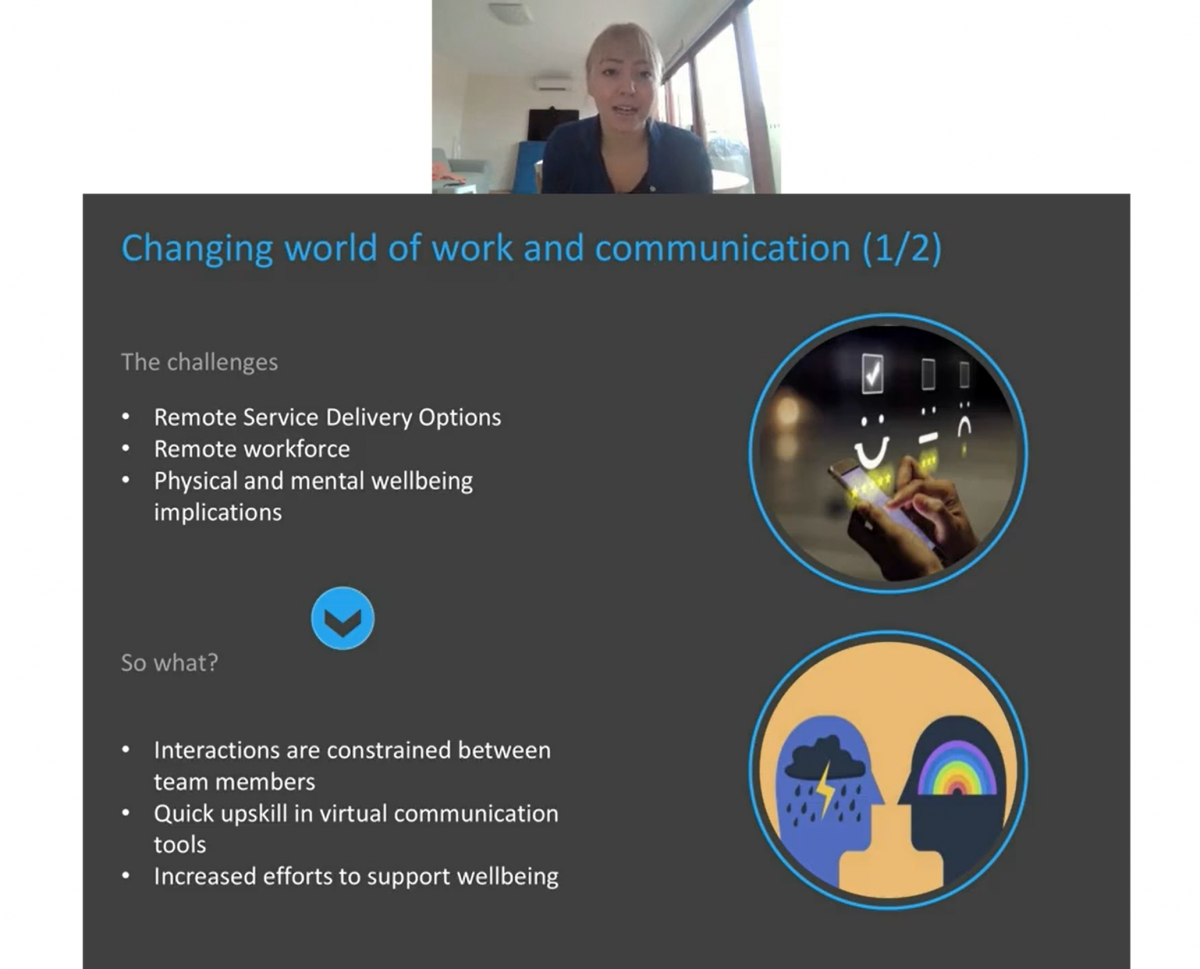
The second session ‘Professional Communication in Digital Contexts’ began with Rebecca Stahlnacke sharing a key skill she had developed during the early years of her career: reading the room. As a consultant, she learned a skill on when to listen and when to contribute to discussions in a professional setting.
Many organisations are shifting to working remotely due to COVID-19, “virtual communication has become important across all workforces,” Rebecca highlighted.
Stressing on the importance of this skill, Rebecca suggests upskilling virtually and improving on one’s knowledge of virtual tools such as Microsoft Teams, Zoom and JIRA.
Rebecca ended her presentation with a piece of final advice to the audience, to remain genuine when connecting with other people. “It brings back the human element,” she added.
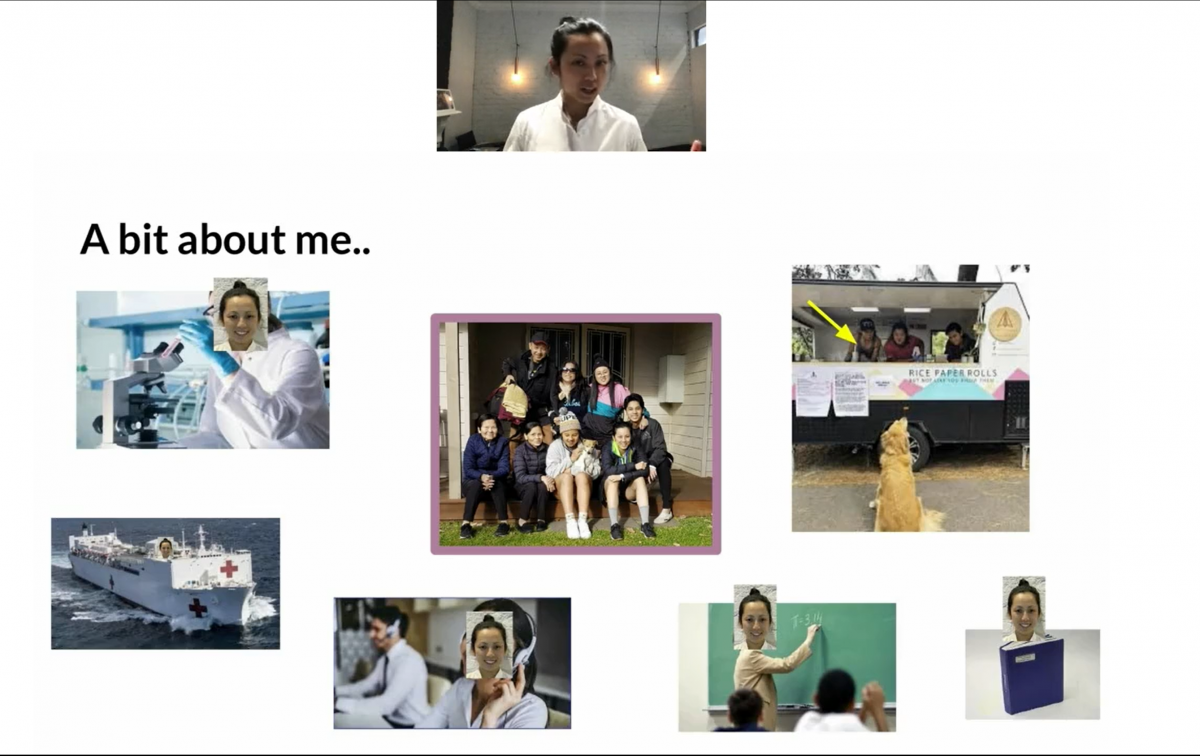
Following on from Rebecca’s session, Katherine Roan re-emphasised the importance of connecting with someone in professional writing.
“You are currently in the best position to be able to reach out to someone.”
Katherine recounted personal experiences connecting with others and how she received positive takeaways. She also inspired graduates to do the same and seek mentorship from people in their respective industry who would be willing to give back in terms of their time and support.
“Follow up–make them feel like it is worth their time,” she asserted.
Session 3: What advice do recruiters and entrepreneurs have for international students?

During the third session, the online conference pivoted to a four speaker discussion about adivce for international students trying to build their career.
The four panelist introduced themselves before heading into the session panel. Dawn tan welcomed us with a virtual tour of her art school in the form of a mongolian yurt, along with Usman Iftikhar who shared his project Catalysr that works with migrant startups.
Followed by Senaya Krishan, who works with international students and their Work-integrated learning program at Deakin University, and finally Olga Barret who’s excited to share her expertise as a professional recruiter, having worked with multicultural expats in her career.
When asked about his mistakes early in his career, Usman said that he never asked for help because being a migrant, he thought he always needed to be self-reliant.
“As soon as I’m open to listening to people’s feedback and asking for help, that really changed my perspective.” He said
Senaya, on the other hand implored students to write up their application with more motivation.
“I often see application forms not being filled out properly… leaving one question blank and not giving the effort you just get declined,” Senaya pointed out.

In a question about different cultural workspaces, Olga recanted her experience with different environments, some choosing application over principal and vice versa. In Australia she noticed that it’s the prior.
She explained that companies value skill and solution over what you can bring to the table culturally.
“Right now, right here, who you are and what you can do, and how you can solve their problem.”
When prompted about keeping their work relevant, Dawn told us that she kept innovating ways to market her business, from blogs, to Instagram and now Tiktok
“Constantly thinking of ways to move forward, instead of waiting until it all passes…even if there’s no COVID-19 keep making your goal for next year.” she smiled.
Session 4: Resilience in Career Development
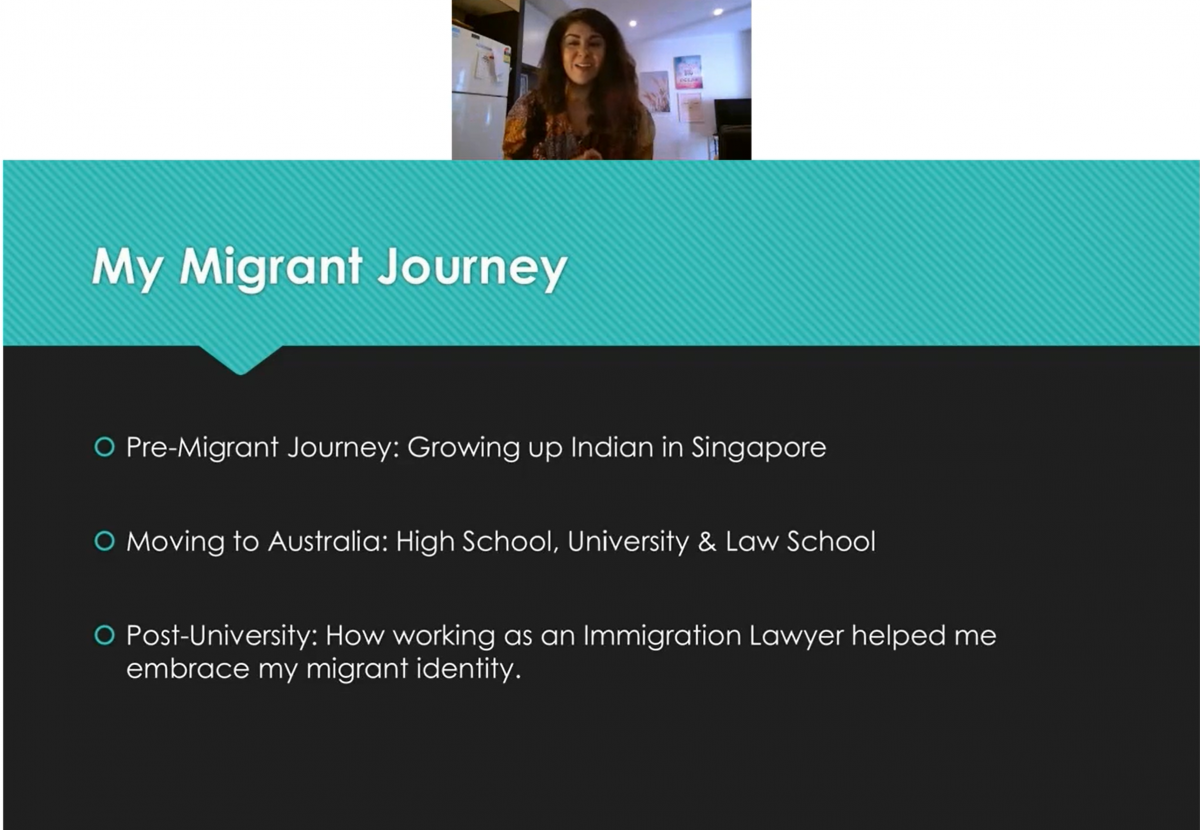
The fourth and final session brought us encouragement and tips on building resilience in the path of your career. Started by Jaoanna Abraham who shared her journey from being a migrant to an immigration lawyer, she finally embraced her identity her cultural background as an asset because it makes her unique and strong.
“Bring your diverse experience, everything that you are is beautiful, embrace your otherness.”

Maria Radysh continued the discussion by sharing that your resilience growth is reflected by your confidence. Knowing that you are capable of starting and finishing things can make you more confident. Start small, like making your bed, or doing the dishes.
“Confidence is not whenever you can, but whenever you will finish something. It helps with decision making.” she added.
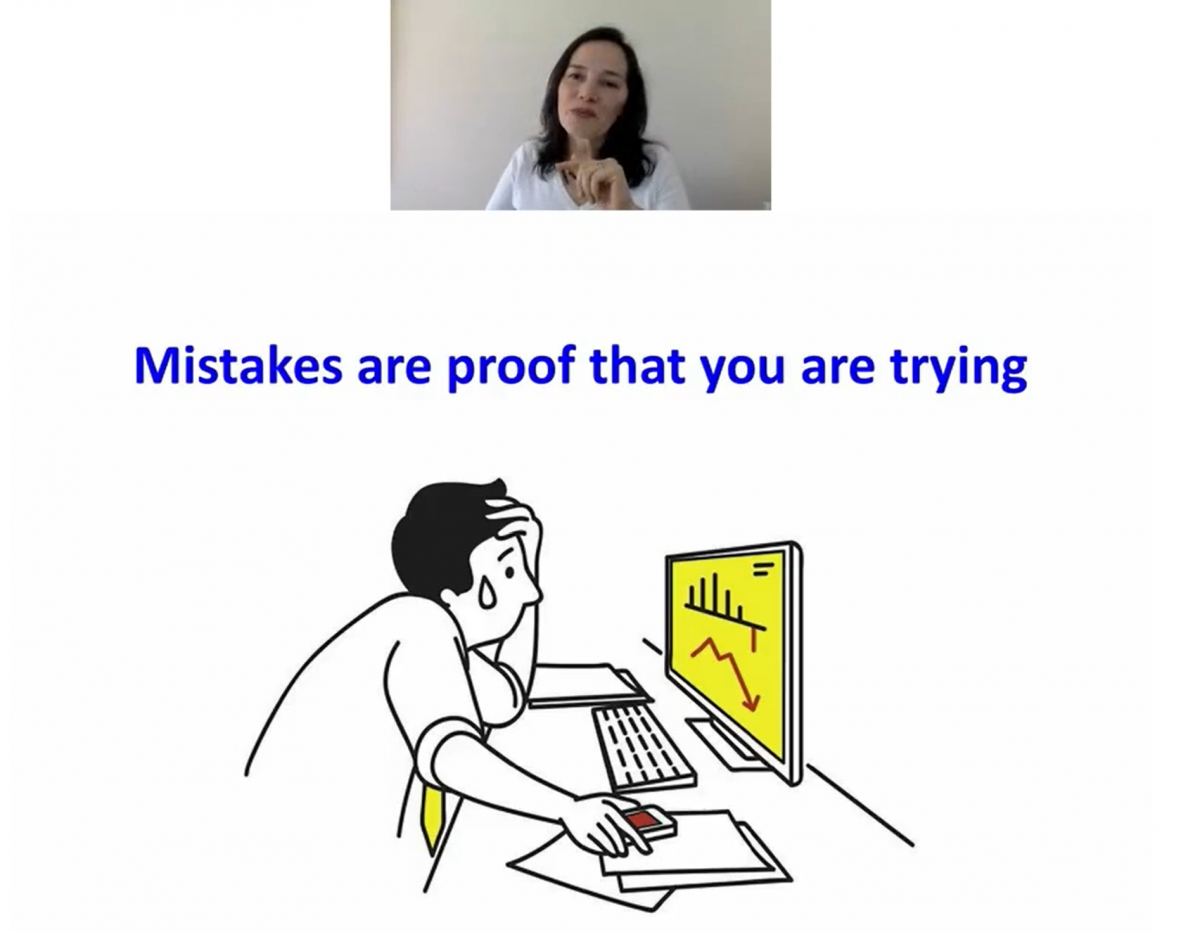
The final encouragement came from Lina Carvaja, who provided five practical steps to build our resilience with her knowledge as a life coach and a counsellor. Her advice brought us to explore our memories and experience to adopt our resilient behavior.
She hoped that we would embrace our mistakes, because it’s proof that we tried. “Failure is not the opposite of success, it is part of success.”
Coming to the end of the conference, Anne-Louise gave us a recap of Change Challenge and Collaborate, and thanked the participants, team members and City Melbourne for supporting the event.
Thank you everyone who joined and see you in MISC 2021!
- Join the MISC 2020 Facebook group to network and connect with the conference participants.
- Follow City of Melbourne to keep up to date with international student support and program
- Participate in the MISC 2020 Survey to get a chance of winning a $50 Coles/Myer gift card.
Meld strongly advises international students to practice social distancing, abide by their city’s lockdown rules and to wear a mask outdoors during the Covid-19 pandemic.
If you need any help and questions send us a message at meld@meldmagazine.com.au or contact your respective state’s Study Australia Partners.

